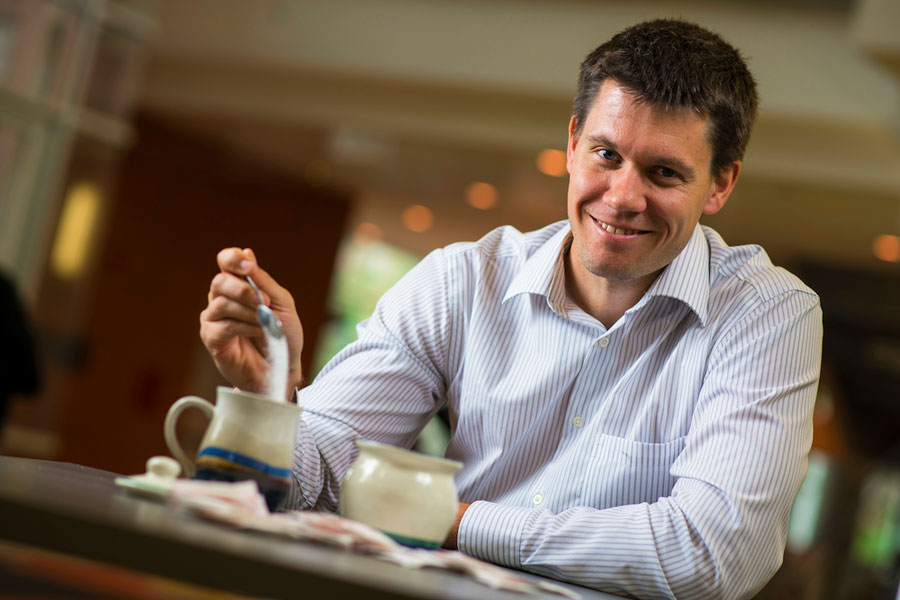
Matt Macauley, new assistant professor in the Department of Chemistry.
A field at the forefront of biomedical science, glycosciences is the study of complex roles for carbohydrates--also described as oligosaccharides or glycans--in biological systems. Going far beyond a role as an energy source, carbohydrates orchestrate many critical cellular processes, all the way from fertilization to programmed cell death.
And with a half-century-plus track record of excellence in glycosciences (dating back to the pioneering work in the 1950s by Raymond "Sugar Ray" Lemieux), the University of Alberta research strength just got a big boost with the addition of Matt Macauley, new assistant professor in the Department of Chemistry.
"My research is at the interface of chemistry and immunology, which is a bit unusual" said Macauley, who obtained his PhD in the chemistry department at Simon Fraser University. "Research at the interface of chemistry and biology is described as chemical biology," said Macauley, who was also quick to point out that the boundaries between the two disciplines are blurring more and more these days. "It is questions about the roles for carbohydrates in control immune responses that motivates me. Being able to tackle these challenging questions with chemical, biochemical, and genetic approaches is powerful."
The BC-born Macauley was happy to return to Canada after seven years at The Scripps Research Institute in San Diego, where he was a postdoc for four years and assistant professor for two-and-a-half. Bolstered by a very recently award five-year National Institute of Health (NIH) grant, Macauley is excited to continue some research he started down south. He's examining how carbohydrates fine-tune antibody responses, an aspect critical for only not only protecting us from all kinds of pathogens but also essential for understanding how autoimmunity arises.
Macauley, for one, is thrilled to carry on his work here, joining a distinguished lineage of scientists.
"The speciality of glycosciences has passed on through multiple generations here at the university dating back to Ray Lemieux, and now we have people like Todd Lowary, John Klassen, Chris Cairo, and Ratmir Derda pushing the field forward," said Macauley, noting several of his new colleagues and collaborators.
Macauley will be working alongside these glycomics powerhouses through both the Alberta Glycomics Centre as well as GlycoNet, the National Network of Centre of Excellence, housed at the University of Alberta. Macauley said he is very excited about the opportunity to join the UAlberta research ranks, strongly rooted in a history of excellence within the glycosciences, while fostering the future of the field.
Work in the fields of biology, chemistry, physics, and medical sciences has lead to many recent commercial breakthroughs in diverse areas of glycomics-ranging from pharmaceuticals to nanotechnology. However, much remains to be discovered, with powerful implications for the field of biomedicine and human health as a whole.
Macauley says that in addition to new exploration in the field, he's excited about the buzz of UAlberta undergrads, something he missed during his time at the graduate-student-only Scripps. He will be teaching organic chemistry in the winter term and is actively recruiting undergraduate students to assist with research in his lab.